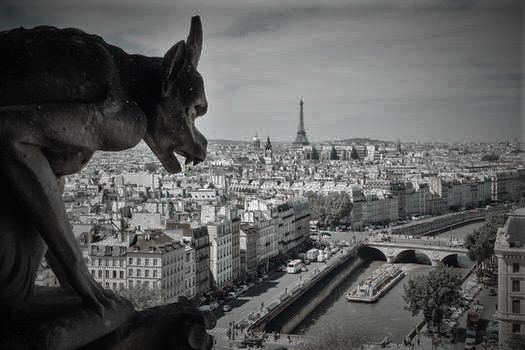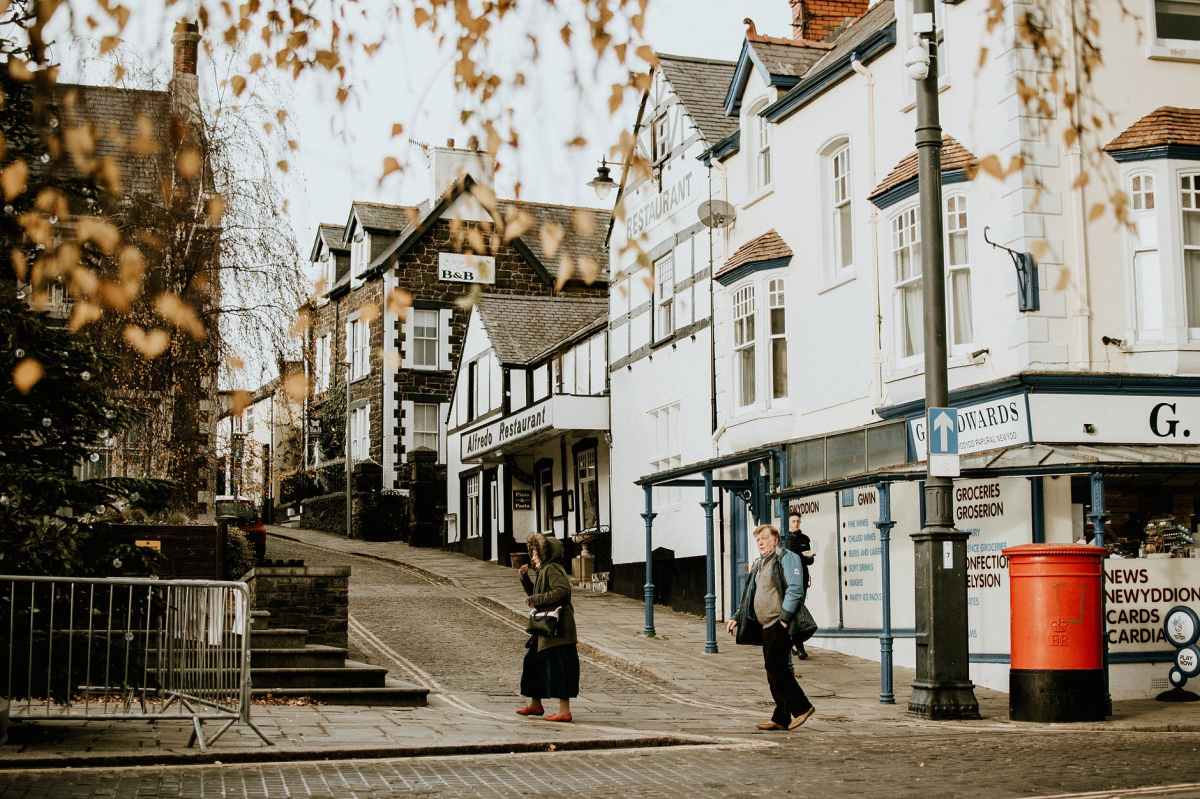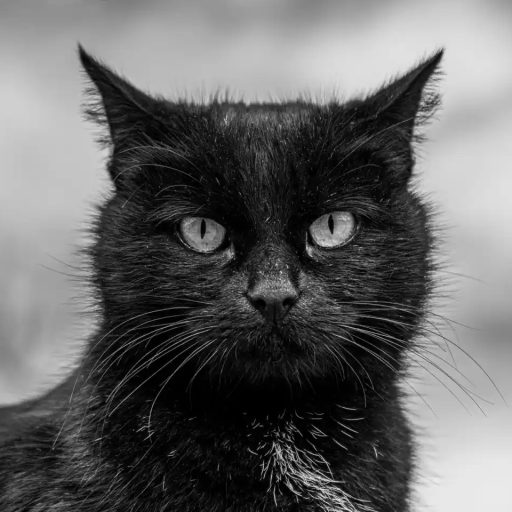Music by Julius H. from Pixabay
Rumours started when the estate was being built. Missing tools and disappearing materials led to mistrust between the different gangs working across the site. Irish navvies deliberated, clutching mugs of dark brew, whispering tales about, ‘…the little people being up to no good.’
The stories continued long after the builders had left. Things started to go missing from inside the residents’ homes. Back then, people didn’t have much. Children ran in and out of unlocked doors whilst they played together, until what little they did have started to vanish, and suspicion grew. The odd bag of sugar or a loaf of bread was bad enough, but when objects of real value disappeared – the wife’s bits of jewellery, the old man’s wallet – neighbour started to close their home off to neighbour.
This didn’t reduce the number of thefts, however. In fact, despite their best efforts, pilfering continued regardless of the routine locking and securing of windows and doors. The local police were mystified. Without any obvious signs of breaking and entering, they decided that most ‘thefts’ must be family members pawning heirlooms, or fraudulent insurance claims. Whilst not disputing the link between crime and poverty, there is likely to be more truth in legend than your average police detective can understand.
***
In the early hours of the thirteenth of last month, in the home of John and Teresa Cawley of Arbor Way, the couple were woken by screams from their new-born child. He was the victim of two diabolical entities known as Grotesque in their native France. Quite how they came to settle in central England is mere conjecture. As an Englishman is typically prejudiced by a more rational mindset than his Celtic cousins, it’s possible that the grotesque were able to stow upon boats trading between France and the southwest, mistaken for rodents. Once invention created the railways in Britain, these fiends would have been able to ride into the heart of the country.
The Cawleys wouldn’t have heard the grotesque entering their home that night. Although about the length of a rat, and despite their powerful limbs and oversized ears, the grotesque can force themselves through the tiniest of spaces. Whilst still unexamined, it can only be assumed that they are endowed with a collapsible skeleton. A gap as wide as your thumb’s width can be infiltrated by the grotesque, leaving insects and mice vulnerable to attack from their marauding parties. The pipework entering the house through the kitchen cupboard supplied them with ample room.
The only tell-tale sign of their presence was the faint rustling of a bag of food. Sacha was partial to a bit of catnip, and always began a sortie with a search for pet food. Quite why humans insisted on housing and pampering the furry menace was a mystery to him, though he was glad of the easy pickings cats and dogs provided. Perhaps dried food was not as tasty, but the convenience of modern packaging had its advantages. The days of having to bite through cans of processed meat with his sharp, overcrowded teeth had passed.
Whilst their speed aided a clandestine existence, their over-enthusiasm was often counter-productive. As Sacha tore through a bag of cat food with his ragged nails, the hard pellets tumbled onto the cupboard floor. He paused momentarily, waiting to hear whether the cascading morsels had alerted anyone. It stayed quiet in the house. Estelle joined Sacha at the food, diving into the open bag. She scooped nibbles into her gaping mouth, barely chewing. Her eyes began to bulge as she struggled to swallow the lump in her throat. She put her hands to her scrawny neck. Estelle looked around for her mate, distressed and panicked. Sacha had gone, mooching around again. Suddenly, Estelle coughed, clearing the blockage in her windpipe. A lump of phlegm and soggy cat food landed at her feet. She sniggered, finding the possibility of her death amusing. Estelle crouched down and hoovered up her vomit.
Sacha was busying himself with a small bag of cat treats that he’d found. As he wrestled with it, he was unaware of the sound carrying to the Cawley’s cat, Henry, beyond the kitchen. The cat was sitting on a low wall in the front garden, staring into the dark. He wouldn’t have expected his owners to offer him a treat at this hour, but being sure of what he had just heard, he jumped down and made a hurried return to the house. Henry entered through the cat flap. He started his habitual purr, rubbing himself against the kitchen cupboards as he walked around. Sacha and Estelle alerted, they stopped to listen. Estelle gently eased open the cupboard door whilst Sacha peered out. He saw the cat now standing still, his purr subsiding.
Sacha quickly climbed up the interior of the cupboard and pushed out through the top of the door. His claws made a faint tapping noise as he dashed around the steel of the kitchen sink. The cat turned to follow the sound, registering the tiny figure moving in the darkness. He paced towards Sacha. Henry started to wind-up his haunches, preparing to leap onto the work surface. Sacha reached the store of kitchen knives, and as he drew out a blade, it sang like a sword leaving its sheath. The cat bolted as the missile whistled past his head, the knife landing heavily on the kitchen floor. Henry disappeared through the cat flap, only easing down his run when clear of the front garden.
The cupboard door slowly opened, and Estelle fell out. She rolled around on her back, holding her stomach, laughing hysterically. Sacha celebrated up on the kitchen top, standing triumphant above his new kingdom.
They were interrupted by voices upstairs.
Teresa sat upright in bed. ‘John. John. Wake up.’ She shook her husband as he slept. ‘John. John. Wake up,’ she continued, as she switched on her bedside lamp.
John groaned as he rolled over. ‘What? What time is it?’ He groaned again as he peered at the alarm clock. ‘Hell. Look at the time.’
‘Shut up, John,’ she replied. ‘I heard a noise.’
‘What bloody noise?’
‘Shhh!’ She held a finger to her lips as if instructing a child. John lay quietly for a moment.
‘There,’ he said. ‘Nothing. Now switch off the light and go back to sleep.’
Teresa continued to listen before shaking her husband again. ‘John. John. Go and check the baby.’
John jumped out of bed with an angry throw of the bedcovers. He muttered to himself as he crossed the landing.
Sacha and Estelle had moved into the hallway, hidden in the darkness at the foot of the stairs.
Estelle looked at Sacha with excitement. ‘Bébé,’ she whispered. Sacha nodded his head and smiled.
John returned to the bedroom, satisfied that his son was safe in the nursery. ‘He’s fast asleep. Now, can we go to sleep?’
As soon as Teresa had switched off the light, Sacha and Estelle ran up the skirting of the staircase, their claws spiking the wood as they climbed. They crept into the child’s room with over exaggerated steps, raising their bulbous noses as they followed the sweet scent of talc and lotion. The grotesque paused at the base of the cot, exchanging excited glances. Sacha pulled himself up first, swinging through the narrow bars and onto the child’s bed. He reached down and lifted Estelle: even the grotesque, selfish as they are, prefer the company of others when feasting. They sidled up to the baby’s head, gathering around his nose and mouth as he lay on the mattress. They began to inhale. Short, shallow breaths at first. Then longer, deeper breaths as they settled into a rhythm.
Longer and deeper.
Longer and deeper.
The baby started to writhe the more that they stole his breath. Their eyes became marble white as they rolled to the back of their skulls.
Longer and deeper.
Longer and deeper.
The child tried to scream, but there was not enough air in his lungs.
Longer and deeper.
Longer and…
Estelle knew nothing of the attack. She was still intoxicated. Henry’s paw crashed through the cot bars. A wild strike, the cat hissing and wailing as he mangled her. Estelle’s body flopped onto the nursery floor, tongue protruding, eyes glazed like a dead fish.
Sacha was startled out of his trance. He fell from the cot, his limbs uncoordinated for a moment. He stumbled across the floor. The baby, his breathing free from the grip of the grotesque, was now screeching like a train brake. As Henry spotted Sacha’s attempt to escape and prepared to pounce, the light in the nursery came on. Teresa screamed.
‘Oh, John. He’s caught a rat!’ She screamed again, jumped, and grabbed her husband. ‘Oh, there’s another one!’
Sacha bolted past them and leapt off the landing. He tumbled down the stairs. Despite the heavy fall, he continued to run, into the open kitchen cupboard below the sink. He could hear the cat bounding down the staircase as he squeezed himself past the plumbing and under the floorboards.
Henry came out into the garden, carrying Estelle in his jaws. He lowered her body till it rested on the ground, and he chewed. As his teeth cracked and crunched through her bones, he heard a sound. He stopped eating as he listened to a grotesque snigger from the flower bed.
© 2022


